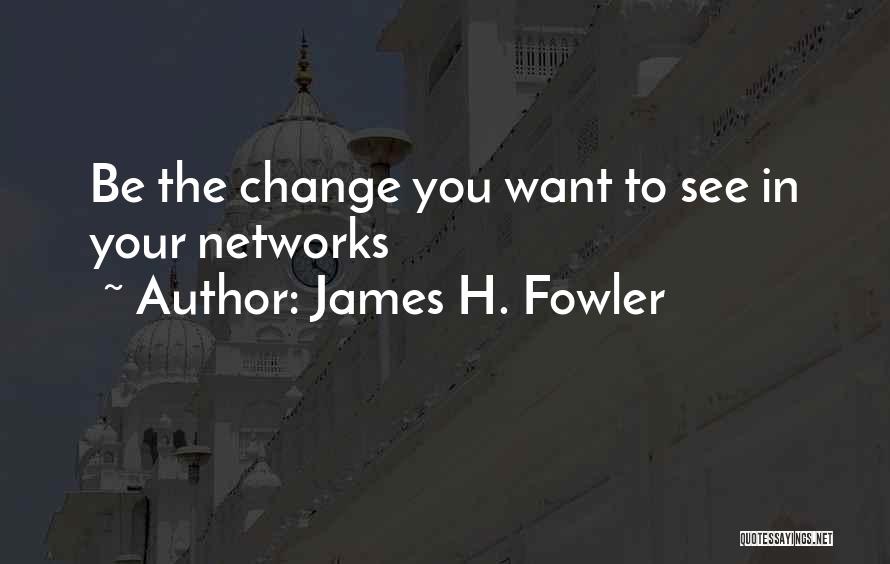James Fowler Quotes & Sayings
Enjoy reading and share 16 famous quotes about James Fowler with everyone.
Top James Fowler Quotes
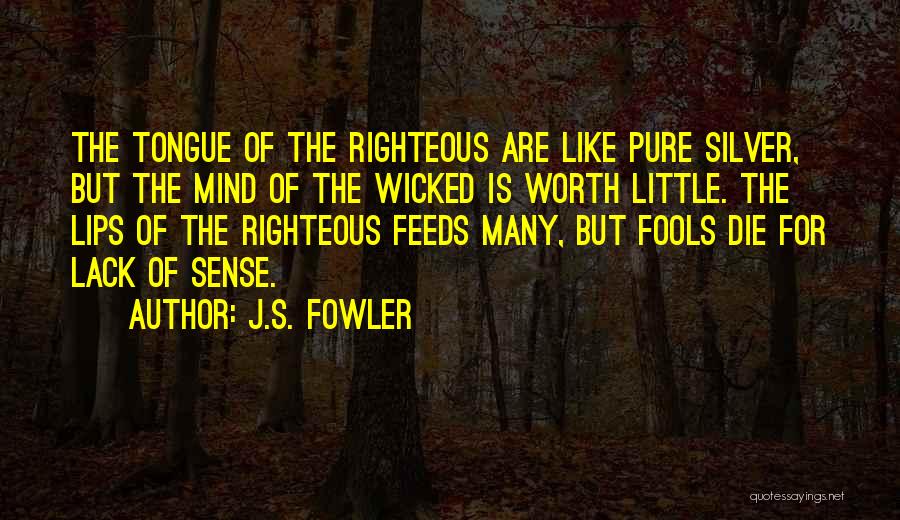
The tongue of the righteous are like pure silver, but the mind of the wicked is worth little. The lips of the righteous feeds many, but fools die for lack of sense. — J.S. Fowler
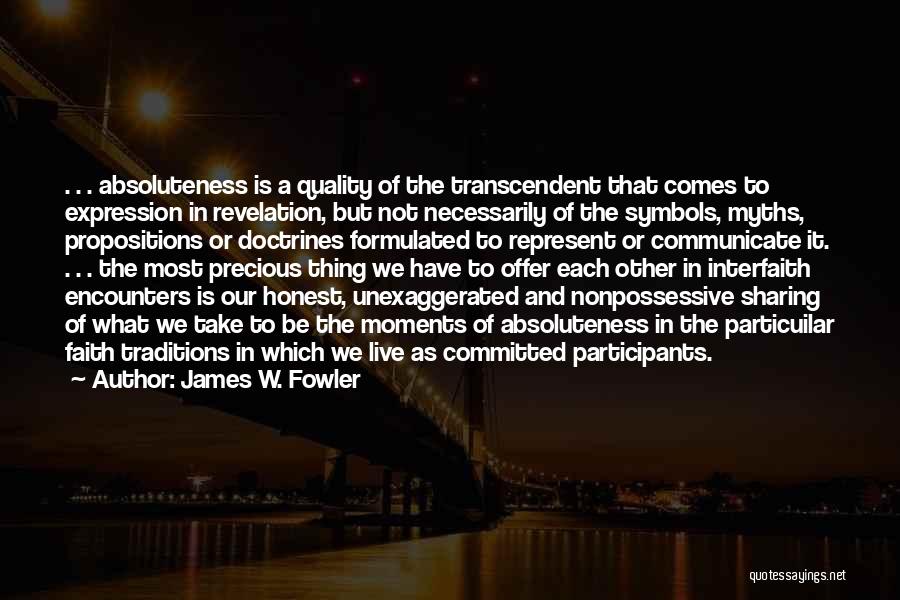
. . . absoluteness is a quality of the transcendent that comes to expression in revelation, but not necessarily of the symbols, myths, propositions or doctrines formulated to represent or communicate it. . . . the most precious thing we have to offer each other in interfaith encounters is our honest, unexaggerated and nonpossessive sharing of what we take to be the moments of absoluteness in the particuilar faith traditions in which we live as committed participants. — James W. Fowler
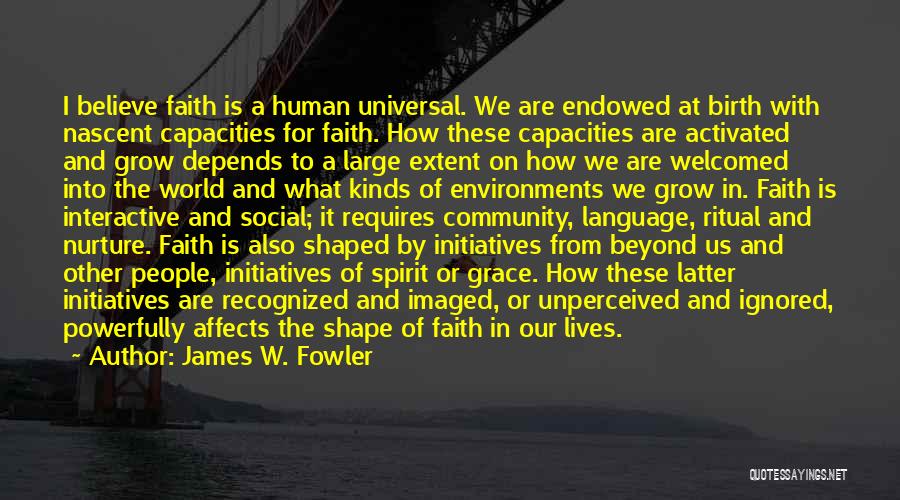
I believe faith is a human universal. We are endowed at birth with nascent capacities for faith. How these capacities are activated and grow depends to a large extent on how we are welcomed into the world and what kinds of environments we grow in. Faith is interactive and social; it requires community, language, ritual and nurture. Faith is also shaped by initiatives from beyond us and other people, initiatives of spirit or grace. How these latter initiatives are recognized and imaged, or unperceived and ignored, powerfully affects the shape of faith in our lives. — James W. Fowler
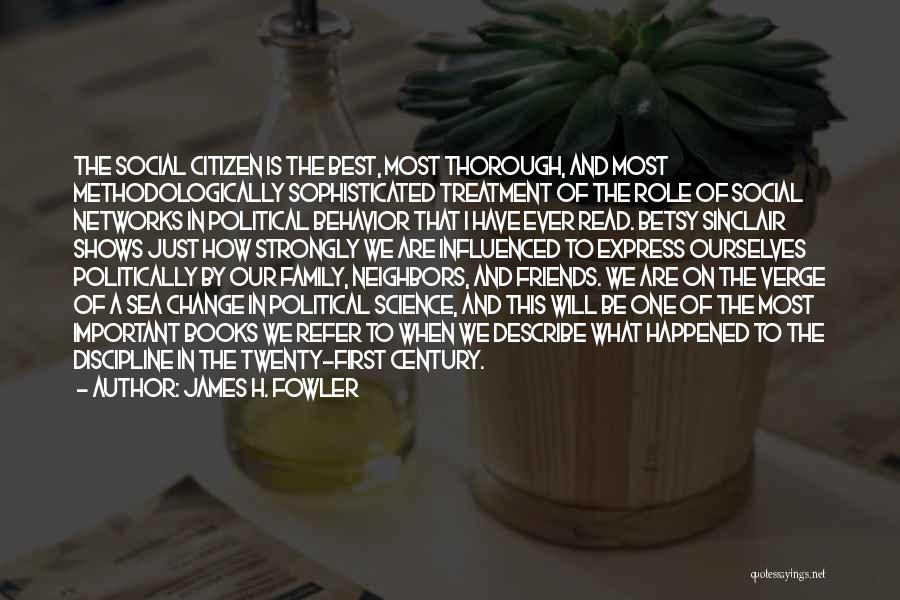
The Social Citizen is the best, most thorough, and most methodologically sophisticated treatment of the role of social networks in political behavior that I have ever read. Betsy Sinclair shows just how strongly we are influenced to express ourselves politically by our family, neighbors, and friends. We are on the verge of a sea change in political science, and this will be one of the most important books we refer to when we describe what happened to the discipline in the twenty-first century. — James H. Fowler
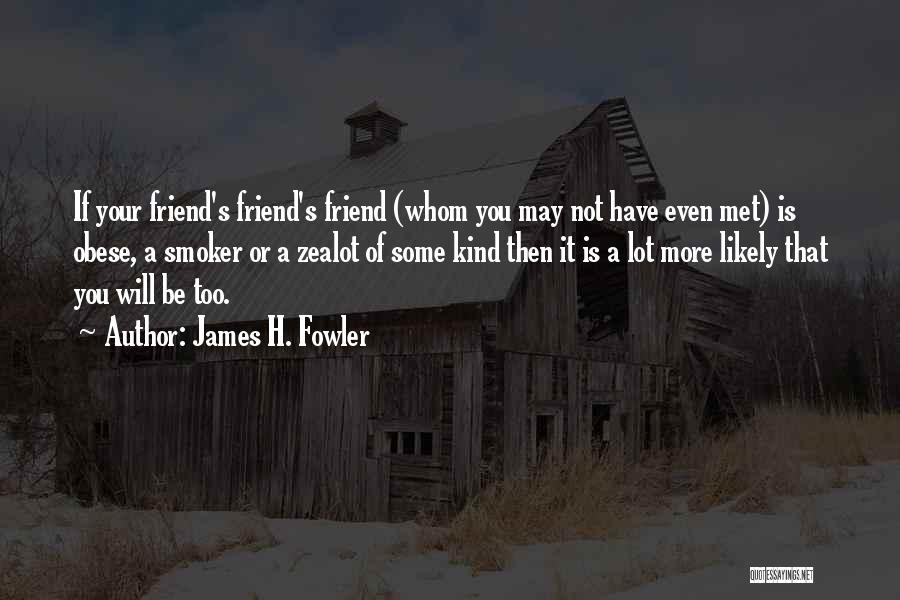
If your friend's friend's friend (whom you may not have even met) is obese, a smoker or a zealot of some kind then it is a lot more likely that you will be too. — James H. Fowler
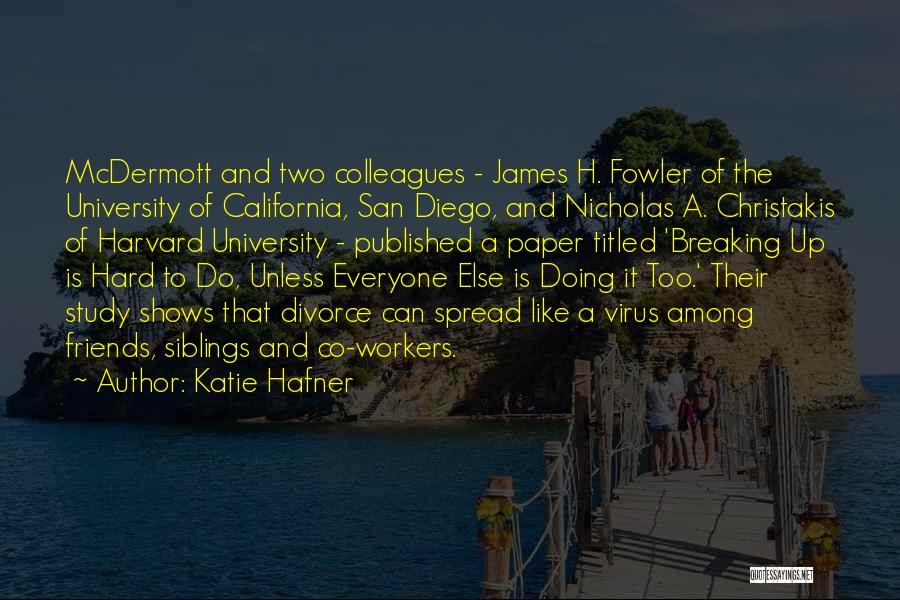
McDermott and two colleagues - James H. Fowler of the University of California, San Diego, and Nicholas A. Christakis of Harvard University - published a paper titled 'Breaking Up is Hard to Do, Unless Everyone Else is Doing it Too.' Their study shows that divorce can spread like a virus among friends, siblings and co-workers. — Katie Hafner
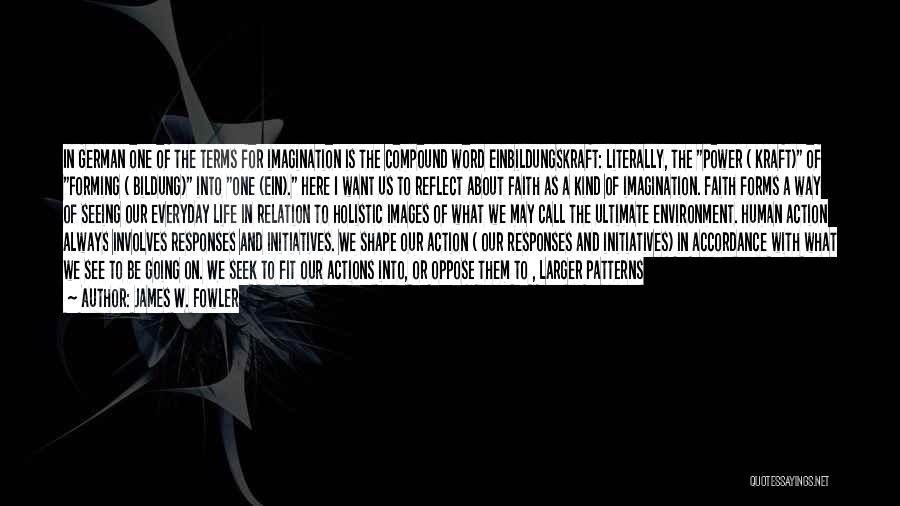
In German one of the terms for imagination is the compound word Einbildungskraft: literally, the "power ( Kraft)" of "forming ( Bildung)" into "one (Ein)." Here I want us to reflect about faith as a kind of imagination. Faith forms a way of seeing our everyday life in relation to holistic images of what we may call the ultimate environment. Human action always involves responses and initiatives. We shape our action ( our responses and initiatives) in accordance with what we see to be going on. We seek to fit our actions into, or oppose them to , larger patterns of action and meaning. Faith, in its binding us to centers of value and power and in its triadic joining of us into communities of shared trusts and loyalties, gives forms and content to our imaging of an ultimate environment. — James W. Fowler
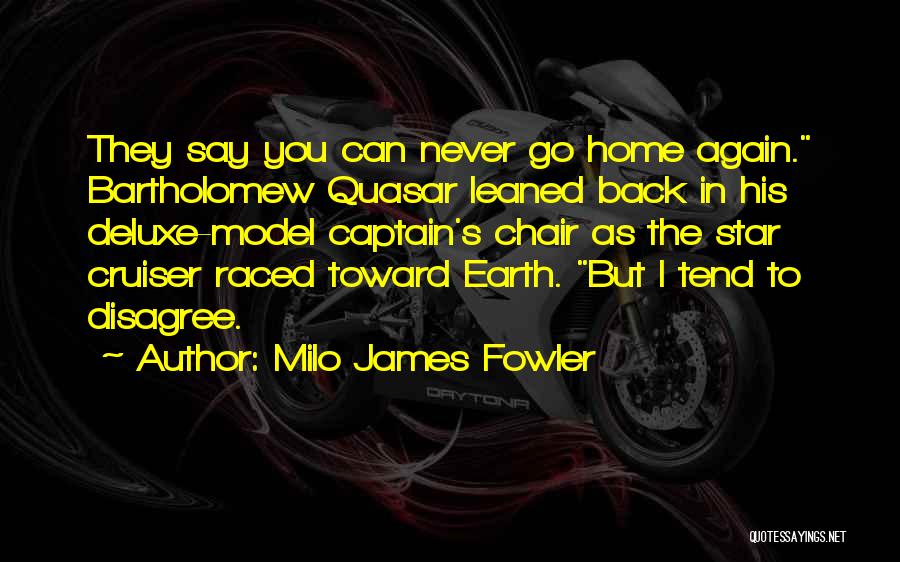
They say you can never go home again." Bartholomew Quasar leaned back in his deluxe-model captain's chair as the star cruiser raced toward Earth. "But I tend to disagree. — Milo James Fowler
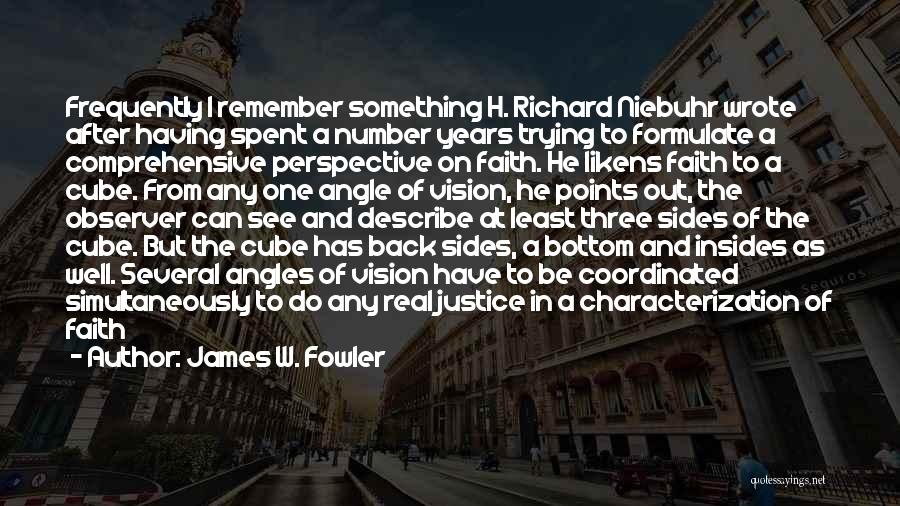
Frequently I remember something H. Richard Niebuhr wrote after having spent a number years trying to formulate a comprehensive perspective on faith. He likens faith to a cube. From any one angle of vision, he points out, the observer can see and describe at least three sides of the cube. But the cube has back sides, a bottom and insides as well. Several angles of vision have to be coordinated simultaneously to do any real justice in a characterization of faith — James W. Fowler
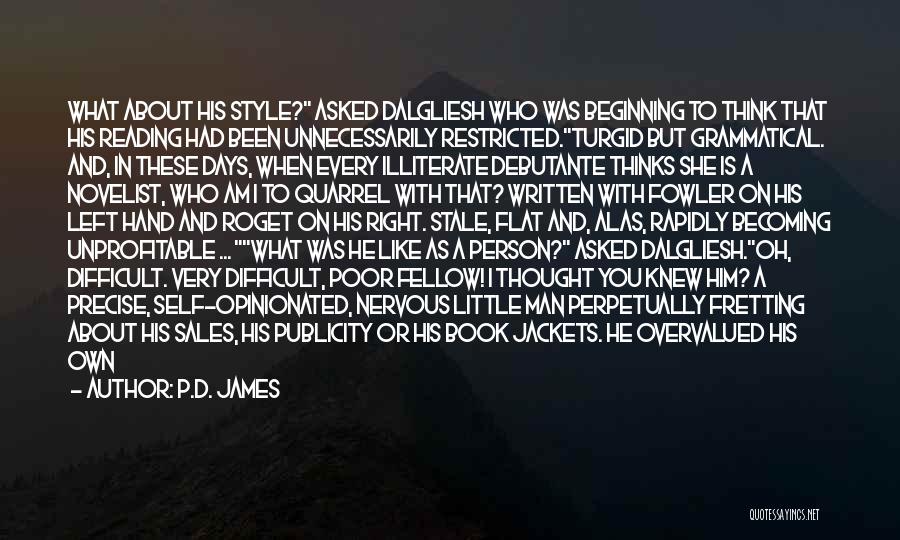
What about his style?" asked Dalgliesh who was beginning to think that his reading had been unnecessarily restricted.
"Turgid but grammatical. And, in these days, when every illiterate debutante thinks she is a novelist, who am I to quarrel with that? Written with Fowler on his left hand and Roget on his right. Stale, flat and, alas, rapidly becoming unprofitable ... "
"What was he like as a person?" asked Dalgliesh.
"Oh, difficult. Very difficult, poor fellow! I thought you knew him? A precise, self-opinionated, nervous little man perpetually fretting about his sales, his publicity or his book jackets. He overvalued his own talent and undervalued everyone else's, which didn't exactly make for popularity."
"A typical writer, in fact?" suggested Dalgliesh mischievously. — P.D. James
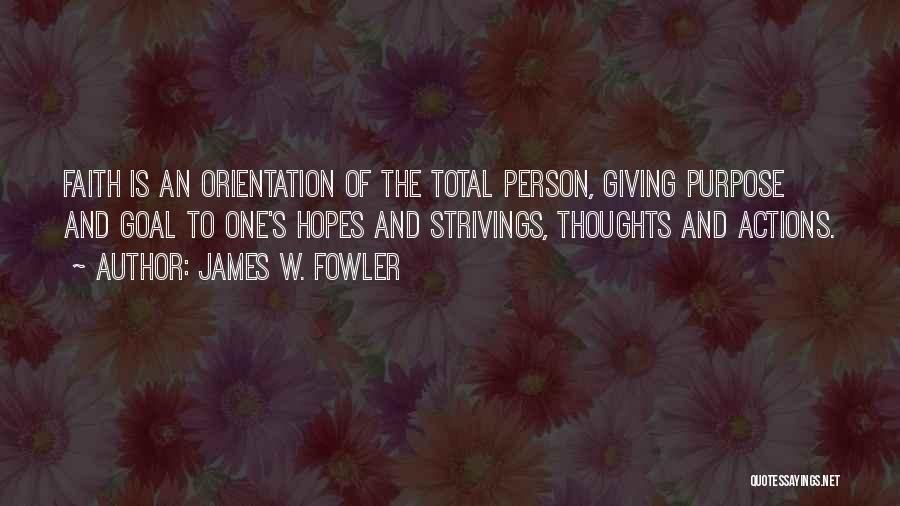
Faith is an orientation of the total person, giving purpose and goal to one's hopes and strivings, thoughts and actions. — James W. Fowler
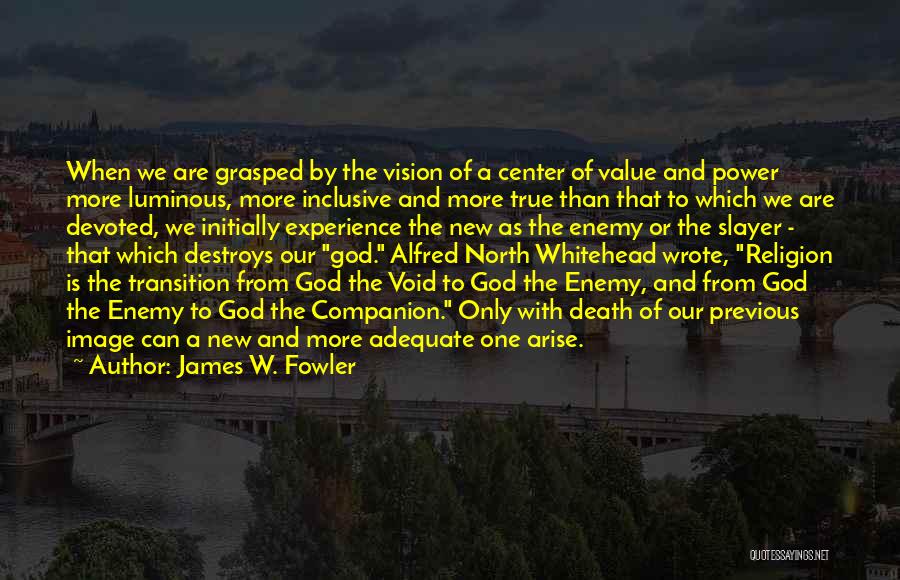
When we are grasped by the vision of a center of value and power more luminous, more inclusive and more true than that to which we are devoted, we initially experience the new as the enemy or the slayer - that which destroys our "god." Alfred North Whitehead wrote, "Religion is the transition from God the Void to God the Enemy, and from God the Enemy to God the Companion." Only with death of our previous image can a new and more adequate one arise. — James W. Fowler
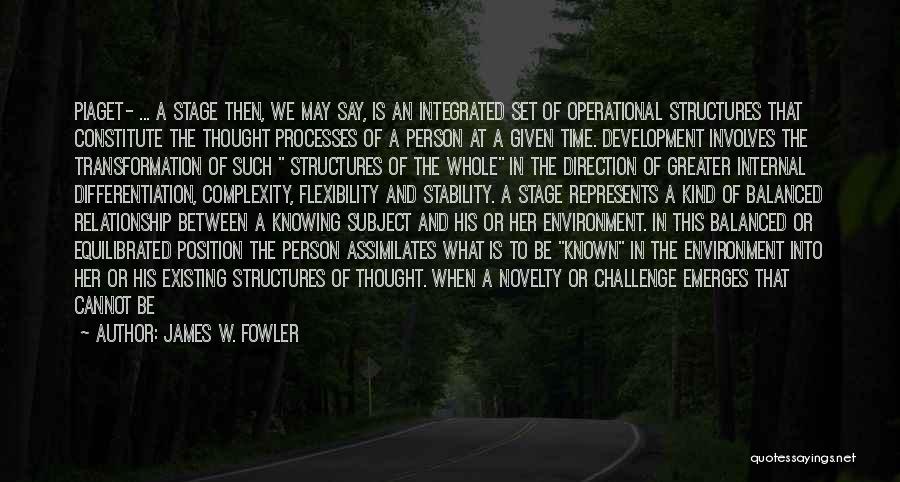
Piaget- ... A stage then, we may say, is an integrated set of operational structures that constitute the thought processes of a person at a given time. Development involves the transformation of such " structures of the whole" in the direction of greater internal differentiation, complexity, flexibility and stability. A stage represents a kind of balanced relationship between a knowing subject and his or her environment. In this balanced or equilibrated position the person assimilates what is to be "known" in the environment into her or his existing structures of thought. When a novelty or challenge emerges that cannot be assimilated into the present structures of knowing then, if possible, the person accommmodates, that is , generates new structures of knowing. A stage transition has occured when enough accommodation has been undertaken to require ( and make possible) a transformation in the operational pattern of the structural whole of intellectual operations. — James W. Fowler
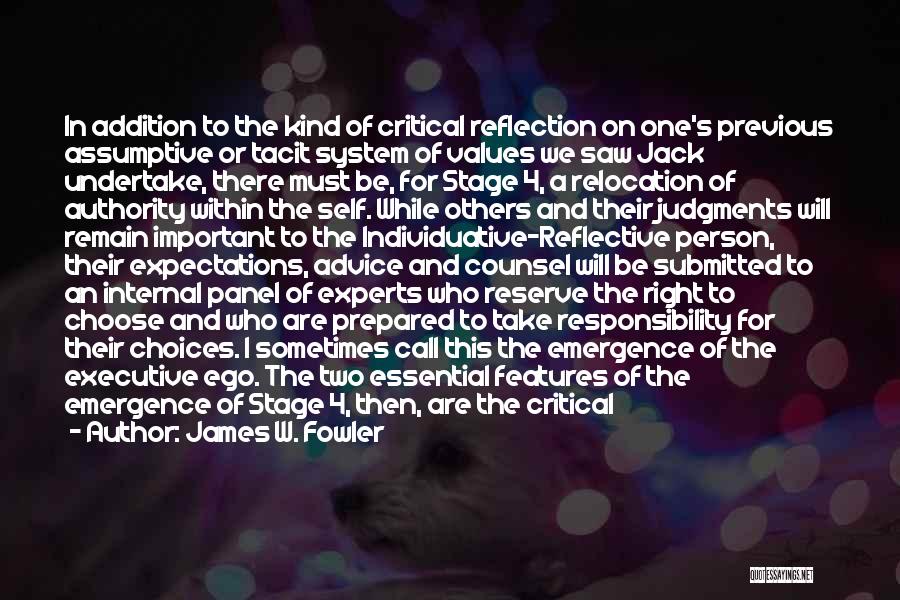
In addition to the kind of critical reflection on one's previous assumptive or tacit system of values we saw Jack undertake, there must be, for Stage 4, a relocation of authority within the self. While others and their judgments will remain important to the Individuative-Reflective person, their expectations, advice and counsel will be submitted to an internal panel of experts who reserve the right to choose and who are prepared to take responsibility for their choices. I sometimes call this the emergence of the executive ego.
The two essential features of the emergence of Stage 4, then, are the critical distancing from one's previous assumptive value system and the emergence of the executive ego ...
We find that sometimes many persons complete half of this double movement, but do not complete the other. — James W. Fowler
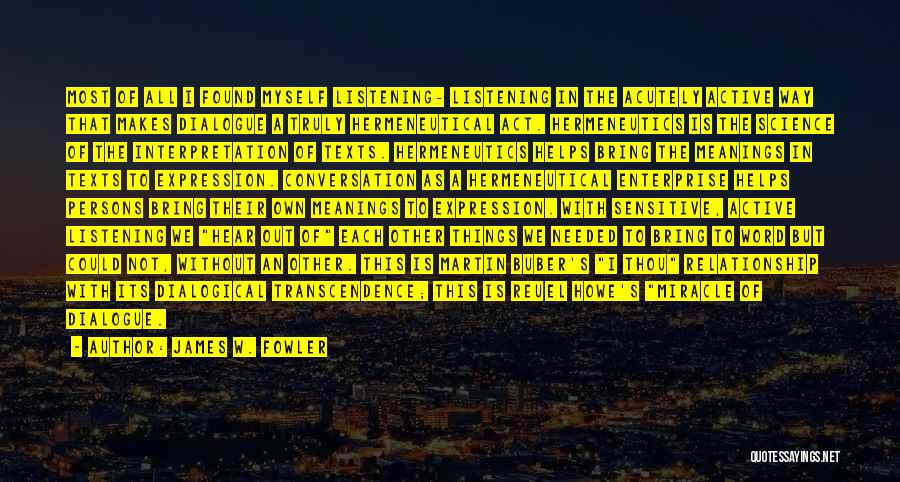
Most of all I found myself listening- listening in the acutely active way that makes dialogue a truly hermeneutical act. Hermeneutics is the science of the interpretation of texts. Hermeneutics helps bring the meanings in texts to expression. Conversation as a hermeneutical enterprise helps persons bring their own meanings to expression. With sensitive, active listening we "hear out of" each other things we needed to bring to word but could not, without an other. This is Martin Buber's "I Thou" relationship with its dialogical transcendence; this is Reuel Howe's "miracle of dialogue. — James W. Fowler






